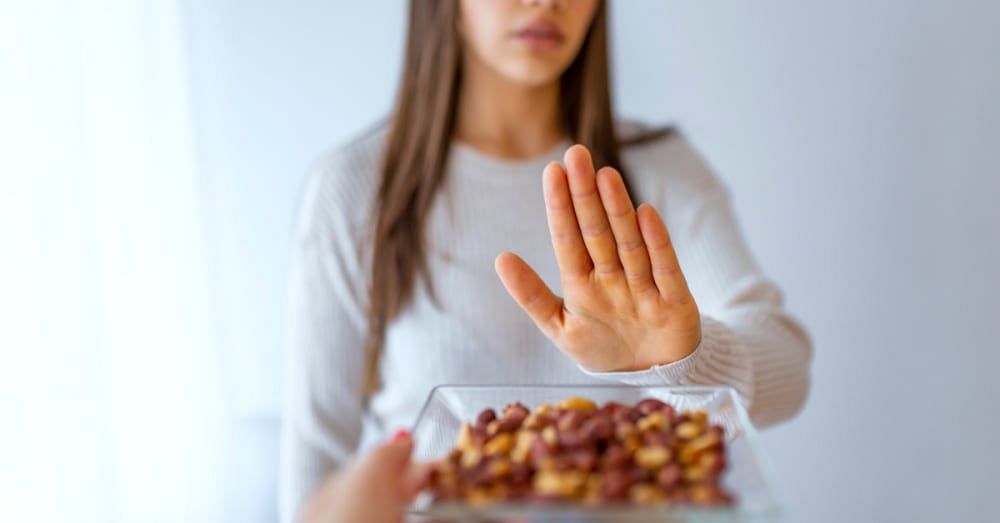Polycystic ovary syndrome (PCOS) is a hormonal imbalance problem and affects around one in 10 women. It affects a woman's appearance and overall health but can be treated with time. The imbalance in hormones could create problems in ovaries and be responsible for infertility. In normal circumstances, one egg is released every month and menstruation begins. However, in PCOS, the egg may not develop or release, thereby resulting in irregular periods. In some cases, there could be cysts development in ovaries too. PCOS treatment in Ayurveda can eliminate all your worries.
What is Polycystic Ovary Syndrome (PCOS)?
Polycystic Ovary Syndrome (PCOS) is a hormonal disorder seen among women of reproductive age. In this condition, women suffer from irregular periods, or the menstrual cycle is longer than the typical duration. PCOS is characterised by an excess amount of androgen, i.e. male hormones. It causes high levels of Luteinizing Hormone (LH), thus leading to low levels of Follicle Stimulating Hormone (FSH). In this condition, the ovaries develop into follicles but fail to release eggs regularly.
Symptoms of PCOS
Acne
PCOS acne is real. How it this possible? The female body depends upon hormones such as progesterone and estrogen for regular ovulation and a timely period. PCOS patients face a drop in estrogen and progesterone levels. Thus, increasing testosterone levels that cause sebaceous glands in the skin to produce excess oil. Once this oil clogs up and builds, your pores are blocked and acne formation occurs. Hormonal imbalance due to PCOS causes breakouts on the face, neck, chest, and even back.
Irregular or no periods
As the ovaries do not regularly release eggs, women usually get fewer periods. This occurs due to a drop in estrogen levels that are responisble for regulating the period cycle. As a result, testosterone levels shoot up and this hormonal imbalance could result in irregular periods. Sometimes, women who have heavy PCOS get less than eight periods in a year!
Weight gain
The majority of women suffering from PCOS have weight gain issues. Why? PCOS makes it more challenging for the body to use insulin. Insulin is the hormone that helps convert sugar into essential forms of energy for your body. When sugars build up in the bloodstream due to the absence of this process, weight gain becomes a common symptom.
Unwanted hair
Unusual PCOS hair growth is also termed as ‘Hirsutism.' Some women may experience hair growth on their back, face, arms, abdomen, and chest. This is usually bought on by hormonal imbalances in the body that lead to spikes in testosterone levels among women, facilitating excess hair growth.
Sleep issues
Women with PCOS are at a higher rate of OSA, medically referred to as Obstructive Sleep Apnea as well as insomnia. Scientists are still investigating why humans need sleep but it is essential for the nervous system to function properly. Progesterone is a hormone that plays an integral part in sleep stabilisation. PCOS causes a decrease in this hormone that leads to sleep issues.
Small steps such as maintaining good sleep hygiene and avoiding caffeine right before bedtime can help with this issue.
Also read: Flaxseed benefits for PCOS
Infertility
The female biology functions in such a way that if women do not ovulate, they cannot get pregnant. This process is exactly what PCOS hinders. Due to this condition, the process of egg development and release from the ovaries is interfered with, often leading to infertility among women. However, do not worry as this condition is common but treatable.
Insulin resistance
Majority of women who have PCOS face insulin resistance. During this condition, insulin sends the ovaries the signal to boost the production of androgens. Excess androgen levels often lead to increased fat around the tummy- one of the symptoms of insulin resistance in PCOS.
Ayurvedic Treatments For PCOS
There are various treatments in Ayurveda that have proved to be effective in curing PCOS in women to an extent. Some of them include:
Nasya treatment for PCOS
Nasya is the administration of drugs through the nasal cavity. Herbal juices (a mixture of herbal ingredients such as cucumber juice, ghee, coconut oil, sesame oil, milk, herb-infused ghee, sunflower oil) and medicated oils (vacha oil, brahmi ghee, tikta ghee) help deal with endocrine disorders to abolish imbalances and maintain equilibrium.
Virechana treatment for PCOS
Virechana is a detoxification method and an effective PCOS treatment in Ayurveda. Purification therapy detoxes the mind and body and is one of the healing Panchakarma techniques. It gathers toxins from various Pitta locations of the body in the small intestine and discharges them out of the body. The therapy is known to heal many emotional, physical, and mental illnesses and disorders. It is effective to treat PCOS symptoms, including hormonal imbalances, irregular periods, and weight gain, to name a few.
Uttarbasti treatment for PCOS
Uttarbasti includes a blend of herbs, medicinal ghee, kashaya, and oil decoction to sustain the reproductive system, boost fertility, and enhance natural conception. The method is known to be an effective way to treat PCOS as it is customized based on the specific symptoms.
Shirodhara treatment for PCOS
Shirodhara is an ancient Ayurvedic treatment that involves Shiro (head) and Dhara (flow) that restores and calms nerves, purifies the mind, releases emotions, and harmonizes the Vata constitutions. All of these maintain hormonal balance and treat PCOS.
Besides the above treatments, Ayurveda also recommends bringing healthy changes to your lifestyle and diet to solve PCOS symptoms. Inclusion of the right ingredients in the regular diet, practising Yoga, and other lifestyle changes can promote hormonal balance. Here are a few healthy changes recommended as PCOS treatment in Ayurveda.
Ayurvedic herbs for PCOS
As per Ayurveda, certain herbs and their blends strengthen the reproductive system, facilitate balanced hormones, and treat PCOS. Some of those include Shatavari or Asparagus Racemosus, Ashwagandha or Withania Somnifera, Shilajit (purified Asphaltum), neem (Azadirachta Indica), cinnamon, and turmeric.
Ayurvedic diet for PCOS
Adopting certain dietary aspects in your daily lifestyle, such as reducing sugar, salt and dairy consumption, consuming mixed vegetables and fruits, and eliminating fried food, helps to treat PCOS effectively. Adding superfoods such as ginger, dates, fenugreek, and whole grains improves overall health and strengthens the body's internal organs.
Fenugreek for PCOS
The fenugreek seed extract is known to reduce PCOS symptoms and has shown positive results in various experiments. There were multiple results showing reduction and complete dissolution of the cyst size and regular menstrual cycles. According to Ayurveda, fenugreek seed extract and other natural ingredients have proven effective in treating diabetes and unwanted weight gain.
There are even capsules with fenugreek seed extracts which are prescribed for regular periods. However, a natural way to consume fenugreek seeds is by soaking them overnight and drinking the strained water in the morning.
Ginger for PCOS
Ginger has been used as a natural remedy to treat PCOS symptoms. It is also known to regulate periods and balance your hormones. You can consume ginger in various forms. For instance, dilute its juice in lukewarm water and drink it. If you find this difficult, try to add ginger to your tea. Ginger powder is also available in Ayurvedic stores and is easy to consume. It also serves as a relief for menstruation or PCOS pain.
Dates for PCOS
Are dates good for PCOS? There is no scientific consensus that explains the link between eating dates and treatment of PCOS symptoms. However, it is said that people suffering from PCOS should have food with a low glycemic index. The GI of raw dates is 42, which comes under the low GI category. Also, dates are naturally sweet. Although there are no proper results on PCOS and dates, one can consult their Ayurvedic doctor or consume dates in moderation.
Reducing non-vegetarian food items balances the hormones and blood glucose levels.
Yoga asanas for PCOS
Regular breathing exercises and performing yoga asanas such as Vajrasana, Uttanpadasana, Vrikshasana, Dhanurasana, Ushtrasana, and Baddha Konasana help in reducing stress, promote calmness, and make your mind and body healthy. All these are recommended to treat PCOS as per Ayurveda. Some of the yoga postures open up the pelvic area and relax the muscles. And a few pranayamas are powerful enough to calm your mind and body.
Also read: Best drinks for PCOS
Other Ayurvedic Treatments for PCOS
Some other lifestyle recommendations in Ayurveda to treat PCOS include managing stress levels, practising pranayama, drinking adequate amounts of water, and indulging in calm and healthy activities to help in treating doshas and bringing a balance in hormones.
Do not worry if you have PCOS. It has become common these days with hectic schedules and pressure on the mind and body. PCOS treatment in Ayurveda can reduce the symptoms and maintain a hormonal balance in your body. However, you should note that it takes time for Ayurveda to settle in and give you results. Make sure you add these techniques in your daily routine and do them regularly without fail.
Ayurvedic Diet Tips for PCOS
For women suffering from PCOS, the following PCOS ayurvedic diet tips can help manage the condition for PCOS treatment in Ayurveda.
- Diets for PCOS should focus on the production of a balanced Aartava (Female reproductive tissue)
- For PCOS, the meal should consist of vegetables such as pears, raisins, and plums and fresh foods such as dates and figs, preferably produced organically.
- Seasonal berries, too, can be of great help in this condition.
- Avoid spicy and fried foods, fermented foods, dairy products, and buttermilk intake as it helps increase the digestive fire.
- Porridge prepared from the extract of Ragi should be consumed.
- Cut down sugar and sugar substitute products and artificial sugar completely from your diet.
Talk With a Doctor Before Trying Ayurvedic Treatment
Before going forward with any treatment - ayurvedic or alternative for PCOS Ayurveda treatment, it is advised to consult your doctor regarding the steps involved. The doctor knows better about any medication issues or potential interaction changes that may occur due to the same. Based on that, you may customise your diet plans to incorporate Ayurveda treatment for PCOS.
Summing Up On PCOS treatment in Ayurveda
The effects of PCOS include excessive hair growth, irregular and infrequent or longer menstrual cycle, and much more. It is characterised by high levels of male hormones, which reduce the Follicle Stimulating Hormone FSH. Due to this, the follicles do not transform completely into mature eggs. The Ayurvedic treatment of PCOD mainly focuses on three aspects -
- Change in lifestyle through dietary changes
- Therapies such as Yoga
- Herbs such as Turmeric and Ashwagandha
However, before starting any treatment or ayurvedic medicine for irregular periods, it is better to consult your decision with your doctor.











